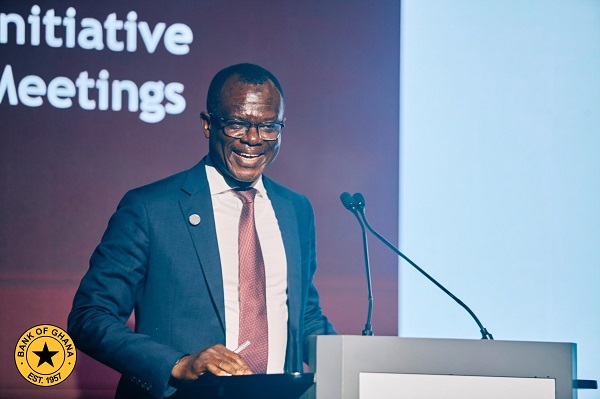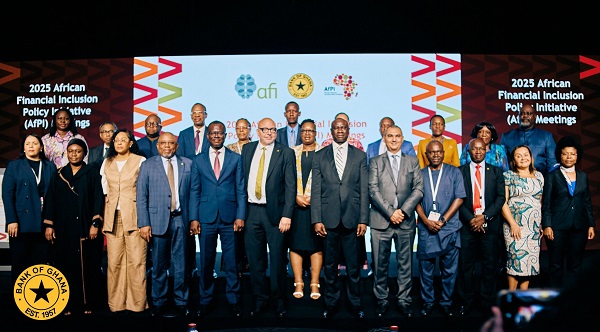
Africa loses $4bn annually to cyber-attacks … Speakers at AfPI meetings call for urgent solution
SPEAKERS at the 2025 African Financial Inclusion Policy Initiative (AfPI) meetings in Accra have raised alarm over a significant rise in cyber-attacks in Africa with financial losses exceeding $4 billion per year.
According to Interpol data, the continent has witnessed a dramatic 150 per cent increase in cyber-attacks over the past year, underlining the rapidly evolving nature of this threat,
For instance, Ghana alone recorded a concerning 21,000 cyber fraud attempts in its financial sector in 2022, demonstrating the pervasive reach of these malicious activities.
The perpetrators of these cyber-crimes predominantly exploit vulnerabilities in digital platforms to target unsuspecting victims, often leveraging sophisticated tactics to deceive and manipulate individuals, businesses, and institutions, thereby stressing the need for increased awareness, education, and robust security protocols to mitigate these threats.
The concerns of the stakeholders, which focused on urgent solution to curb the rising cyber-attacks dominated discussions at the 14th Annual Roundtable for leaders of the African Financial Inclusion Policy Initiative meetings in Accra on June 20.
On the theme: “Strengthening Cyber Resilience in Digital Financial Services in Africa: The Role of Financial Regulators,” the forum was organised by the Bank of Ghana (BoG) and Alliance for Financial Inclusion (AFI).
It provided a platform for leaders from AFI member institutions in Africa to engage in in-depth discussions on enhancing the cyber resilience of Africa’s digital financial services.
The dialogue also focused on strengthening the role of financial regulators in policy formulation, risk management, regulatory compliance, and cross-border cooperation to foster a secure, inclusive, and sustainable digital financial ecosystem.
Financial innovation
The first Deputy Governor of the Bank of Ghana, Dr Zakari Mumuni, who represented the Governor, stated that the rapid expansion of digital technology and financial innovation was reshaping the country’s economy
He said digital financial systems such as mobile money, digital credits, agency banking and many others were transforming the lives of many, empowering small businesses and extending the reach of finance to previously excluded sections of the population.
“Yet, this transformation brings new risks. The very technologies that enable access to innovation also expose our systems to sophisticated cyber threats. As regulators, we are now tasked with a dual responsibility.
“To promote inclusion while defending the integrity and resilience of our financial infrastructure. Cybercrime is not a distant risk; it is a present danger,” he said.

Fraud attempts
Dr Mumuni said in 2022, for instance, Ghana alone, recorded over 21,000 cyber fraud attempts in the financial sector, most targeting digital platforms.
He said data from Interpol indicate that across Africa, the cost of cybercrime was estimated to have exceeded $4 billion annually.
“This reality underscores a simple truth. Financial inclusion without system integrity is unsustainable. Cyber security is no longer an information technology issue.
“It is a strategic imperative at the core of financial governance. Public trust, institutional confidence, and systemic stability now hinge on our ability to anticipate, withstand, and respond to cyber risks. In Ghana, the Bank of Ghana has long recognised this imperative,” he added.
Africa’s impact
The Chief Executive Officer of Alliance for Financial Inclusion (AFI), Dr Alfred Hannig, said the global cybercrime was escalating and Africa bare disproportionate share of the impact
With data from Interpol, he said cyber-attacks in Africa have increased by nearly 150 per cent in the past year.
“Reported losses in Africa now reach billions of dollars. 58 per cent of Africans now say they are very concerned about cybercrime up from nine per cent two years ago.
“This is a clear signal of why we want to work on this cyber threat which is escalating to systemic levels, targeting core financial infrastructure and threatening to erode the trust that has been built with so much effort over the years,” he added.